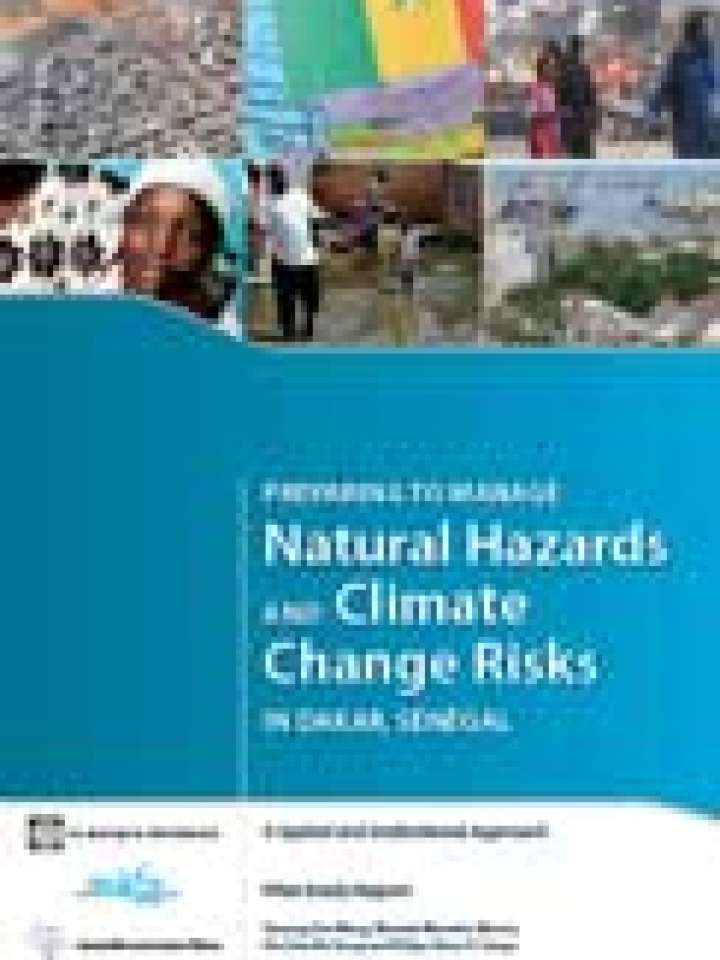Preparing to manage natural hazards and climate change risks in Dakar, Senegal
This report presents state-of-the-art spatial analysis tools to evaluate natural hazard and climate change risks whilst addressing the critical knowledge and capacity gaps of local governments. It describes a pilot study of natural risk hazards in the peri-urban extension areas of the Dakar Metropolitan Area, Senegal. The report intends to propose a new methodology for quick assessment of natural hazard risks at a metropolitan region scale, using new tools of spatial analysis based on geographic information systems (GIS) data. It also aims to apply the principles and diagnostic of the Climate Change City Primer questionnaire, developed by the East Asia Region of the World Bank, in order to obtain a comprehensive view of the existing institutional framework for climate change-related hazard risk management in the city.
Bringing the spatial and the institutional analyses together, the study proposes and starts to develop a number of dissemination and awareness-raising tools that can help to inform different stakeholders about the general parameters of the natural hazard risks facing the Dakar Metropolitan Area. The pilot study concludes with a broad action plan for Dakar, to ramp up disaster management practices, as motivation for a stakeholder debate to define subsequently a set of specific and viable actions.
Explore further
